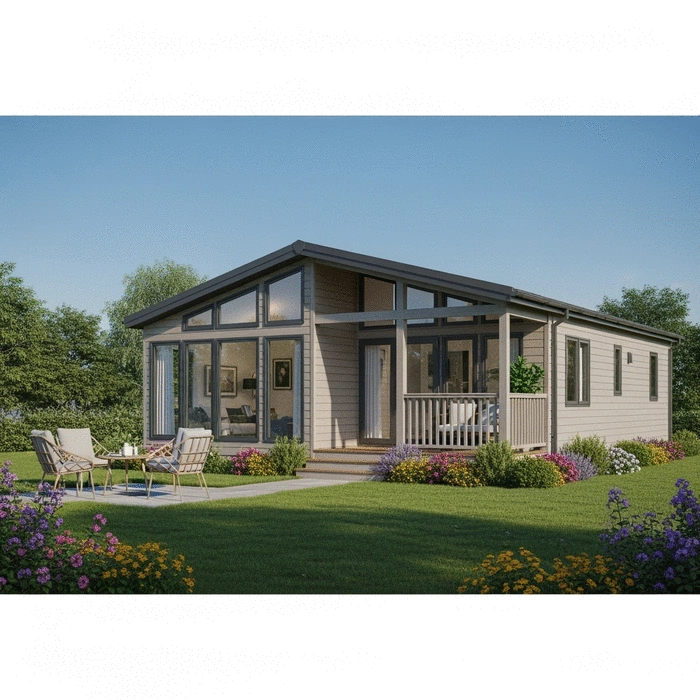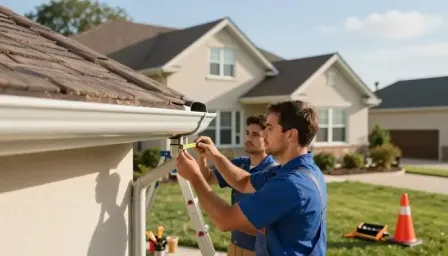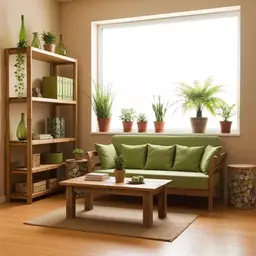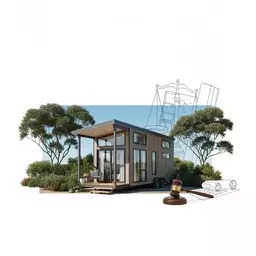Factory Construction
Constructed in a factory setting ensures controlled quality and quicker assembly processes compared to traditional building methods.
Get expert advice, innovative design ideas, and practical tips for your tiny home journey in Australia.
Posted on: 2025-10-25
By: Sophie Marchant
As the demand for sustainable living options rises, modular homes stand out as an innovative solution that combines quality, affordability, and eco-friendliness. If you're considering a modular home, understanding its unique features can empower you to make an informed decision.
Modular homes offer distinct advantages that set them apart from traditional housing options. Below are the key features highlighted for potential buyers:
Constructed in a factory setting ensures controlled quality and quicker assembly processes compared to traditional building methods.
Homebuyers can personalize their modular homes by selecting layouts, finishes, and features to suit their preferences.
Modular homes can be completed in weeks rather than months, making them ideal for first-time buyers or those in need of quick housing solutions.
Typically, modular homes are more cost-effective compared to traditional homes, making homeownership more accessible.
Built with sustainable practices, modular homes often have energy-efficient designs, contributing to a reduced environmental footprint.
Have you ever wondered what makes modular homes unique? Understanding these homes is the first step for anyone considering this exciting option. Modular homes are constructed in a factory setting, which allows for a controlled environment and often results in higher quality. They are then transported to your chosen site and assembled, making them a quick and efficient housing solution.
One of the key features of modular homes is that they can be customized to fit your needs. From the layout to the finishes, you have the power to create a space that truly reflects your style. As someone deeply invested in sustainable living through The Tiny Living Guide, I believe that modular homes can also embody eco-friendly principles, making them a choice worth considering.
In simple terms, a modular home is a house built from pre-fabricated sections or modules. These modules are constructed in a factory and must adhere to the same building codes and regulations as traditional homes. This means you can expect high quality and durability with modular homes.
Moreover, modular homes are often confused with mobile homes, but they are quite different. Mobile homes are built on a chassis and can be moved easily, whereas modular homes are constructed on a permanent foundation. This distinction can impact everything from financing to insurance, so it's important to clarify these terms as you embark on your journey! For more on legal aspects, understanding tiny house zoning laws explained can be very helpful.
As more people seek affordable and sustainable living options, modular homes are gaining traction in the housing market. They provide a unique solution for those looking to downsize or minimize their environmental impact. With more people embracing the idea of living small, modular homes are becoming a popular choice!
Another factor contributing to their popularity is the speed of construction. Unlike traditional homes, which can take months or even years to build, modular homes can often be ready in a matter of weeks. This quick turnaround can be especially appealing for first-time buyers or those in a hurry to settle into their new space.
At The Tiny Living Guide, we believe in the transformative potential of modular homes. They not only provide a pathway to homeownership but also support a more sustainable lifestyle. If you’re considering a modular home, remember that it’s a step towards simplifying your life and embracing the freedom of minimalism.
When considering a modular home, don’t overlook the importance of visiting a factory. This gives you a firsthand look at the construction process and materials used, helping you make a more informed decision. Plus, it allows you to engage directly with the builders and ask questions about quality standards and customization options!
As we come to the end of our exploration into modular homes, it’s crucial to reflect on the key insights that can guide your buying journey. Understanding what to look for in a modular home, from the reputation of manufacturers to the environmental impact of your choices, sets the stage for a successful purchase. Remember, investing in a modular home isn’t just about the building; it’s about creating a lifestyle that aligns with your values and aspirations.
Here’s a quick recap of essential questions to ask before making a decision:
Many buyers have similar questions when considering modular homes. Addressing these can help alleviate concerns and clarify the buying process. Here are some common FAQs that I often hear:
Having clear answers to these questions will empower you as you navigate your way through the modular home market. It’s about finding the right fit that resonates with your lifestyle. I always encourage potential buyers to do their research and engage with the community to hear real-life experiences!
Now that you’re equipped with insights and answers, it’s time to take action! Finding reliable resources and support is essential as you embark on this exciting journey. Websites like The Tiny Living Guide can be invaluable, providing advice on everything from zoning laws to optimizing small spaces.
Here are some excellent resources to help you get started:
I believe that sharing experiences creates a stronger community. If you have questions or stories about your own modular home journey, I’d love to hear from you! Engaging with others who share your interests can provide support, inspiration, and valuable insights. What challenges did you face? What successes have you celebrated? Join the conversation and let’s build a community that embraces the joys and challenges of modular living together! Consider exploring sustainable living in tiny homes for more inspiration.
Ultimately, this journey toward sustainable and efficient living is not just a personal one; it’s a movement toward a lifestyle that many are beginning to embrace. Together, let’s explore the possibilities that modular homes can offer! For those interested in maximizing their living space efficiently, check out these space-saving tiny house designs.
Here is a quick recap of the important points discussed in the article:
Getting your gutter installation right is key to k

 Getting your gutter installation right is key to keeping your home safe from water damage. A good gu
Getting your gutter installation right is key to keeping your home safe from water damage. A good gu
 What if your small living space could also be a sanctuary for the planet? Embracing sustainability n
What if your small living space could also be a sanctuary for the planet? Embracing sustainability n
 As the tiny home movement gains momentum in Australia, the legal landscape can feel daunting. Howeve
As the tiny home movement gains momentum in Australia, the legal landscape can feel daunting. Howeve